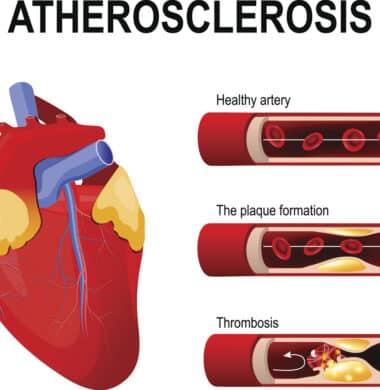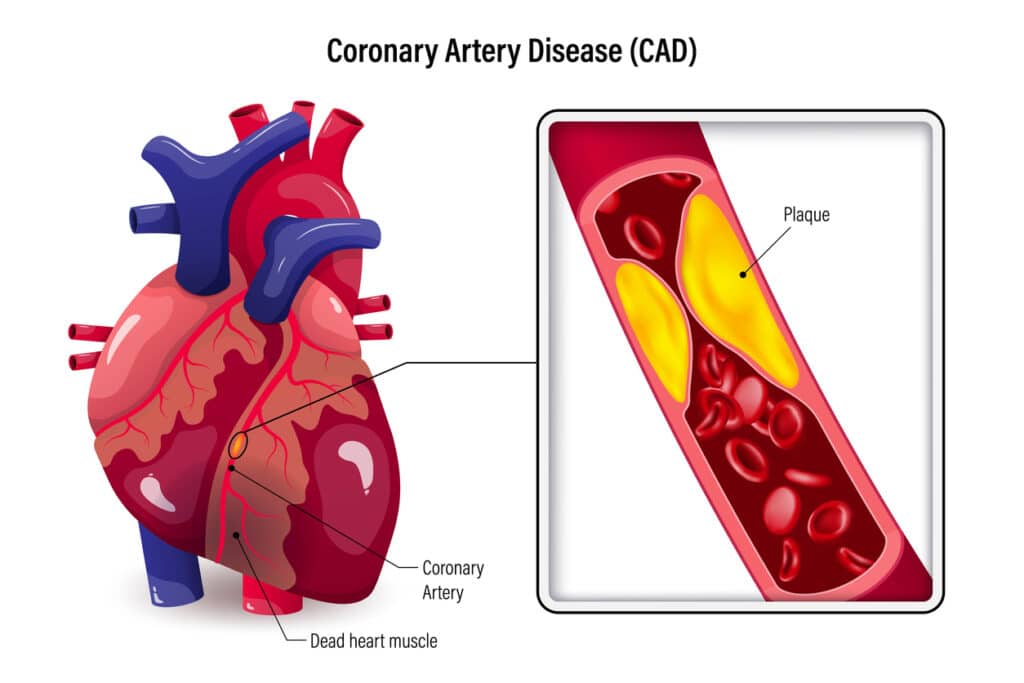What Is Coronary Calcification and How Can I Avoid It?

Dr. Grant Bailey, one of the cardiologists at South Denver Cardiology, specializes in cardiovascular disease, imaging of the heart and blood vessels and also help with our congestive heart failure clinic. Below, Dr. Bailey answers the questions of “What Is Coronary Calcification and How Can I Avoid It?”
Cardiovascular disease is the leading cause of death both in the United States and worldwide. When plaque builds up in the coronary arteries supplying blood to the heart, it can eventually cause these arteries to become blocked, preventing proper blood flow to the heart. This process, called atherosclerosis, can trigger a heart attack.
Atherosclerosis is often referred to as “hardening of the arteries,” and this process is impacted by a variety of factors, including:
- The levels of cholesterol circulating in your bloodstream
- Inflammation
- Genetics
- Environmental factors
Once cholesterol accumulates in the coronary arteries, calcium and other minerals will also build up there. This process is called coronary calcification. Coronary calcification can be detected on x-rays, which is why this type of imaging is commonly used to identify the presence of calcium in heart arteries. Coronary calcification is a common sign that you have atherosclerosis and vascular disease.
Why Is Coronary Calcification Concerning?
If a diagnostic test detects the presence of coronary calcification in your arteries, it means you have atherosclerosis. If your coronary calcification is severe, it may indicate that you’re likely to develop blockages in your arteries. Therefore, coronary calcification is often associated with an increased risk of heart attack, stroke or other complications associated with poor blood flow to the heart and other organs.
Steps to Reduce the Risk of Coronary Calcification and Heart Disease
Coronary artery disease is a complex condition that is impacted by a variety of factors, including genetics. While it’s impossible to control a genetic predisposition to heart disease, there are certain steps you can take to reduce your risk. These include:
- Visiting your doctor for regular checkups to monitor your cholesterol and blood pressure
- Getting a calcium heart test to detect the presence of coronary calcification
- Taking medications to lower blood pressure and cholesterol levels when these become elevated
- Quitting smoking
- Avoiding processed foods
- Exercising regularly
- Engaging in stress reduction practices
- Eating a healthy diet
A great first step to determine whether you’re at risk of heart disease is to visit your doctor and have your blood pressure, cholesterol and blood sugar checked. When these levels become elevated, it indicates you are at higher risk of heart disease. If you experience high cholesterol, high blood pressure or high blood sugar levels, talk to your doctor to see if medications might be an effective way to reduce your risk of cardiovascular disease.
The Importance of Diet and Exercise in Reducing Your Risk of Heart Disease
Regardless of whether these test results indicate an elevated risk of heart disease, you should commit to getting at least 30 minutes of exercise a day and eating a heart healthy diet.
Many people work sedentary jobs, sitting in a chair at a desk for long hours every day. Research has shown that over time, even small amounts of daily physical activity and exercise can drastically reduce your risk of heart disease, diabetes, high cholesterol and high blood pressure. Recent studies have shown that being active will also improve your mood, sleep quality and overall wellbeing. In addition, it can even reduce the risk of cognitive decline and dementia later in life. For this reason, finding ways to add exercise into your daily routine is perhaps the most important thing you can do to take control of your health.
The other important factor impacting your heart health is your diet. There is a lot of information circulating – both accurate and inaccurate – regarding the best foods to eat to maintain a healthy lifestyle, and many people struggle to determine which advice should be followed. The following tips will help you maintain a heart healthy diet:
- Eat lots of “whole foods” such as fresh fruits and vegetables, legumes and whole grains
- Get your protein from lean meats such as fish
- Cook with non-inflammatory oil (olive oil) and avoid seed oils
- Avoid processed foods since they often contain unhealthy fats, seed oils and inflammatory ingredients
- Limit the intake of fatty meats, especially processed and cured meats
Find Out if You Have a Genetic Predisposition to Heart Disease
Genetics can play a major role in your heart health. As a result, even if you take all the steps necessary to maintain optimal heart health, you can still be at risk of heart disease. If you have a strong family history of heart problems, you should visit a cardiologist for routine diagnostic testing to ensure any signs of heart disease are detected in their earliest stages.
South Denver Cardiology Can Help You Maintain Optimal Heart Health
At South Denver Cardiology, we offer a wide range of services to help you take control of your heart health and treat any heart conditions you may develop. This includes:
- Comprehensive diagnostic testing to identify signs of heart disease in their earliest stages
- Preventive care to help you reduce your risk of heart disease
- Comprehensive clinical cardiology services to treat just about any heart condition you may have
- Nutritional consulting services to help you establish and maintain a heart healthy diet
- Medical weight loss clinic to help you establish and maintain a heart healthy weight
- Medical fitness gym to help you establish an exercise routine that will maintain optimal heart health
Contact us today to schedule an appointment. South Denver Cardiology Associates serves patients in Denver, Littleton and the surrounding areas.
- 9 Tips to Reduce Holiday Stress - December 11, 2025
- 6 Tips for Exercising Outdoors with a Heart Condition - May 19, 2025
- Lifestyle Changes That Can Help Manage Arrhythmia - April 30, 2025
Sign Up
As with any health concerns, your specific treatment program should be discussed thoroughly with your primary care physician as well as any specialists who may need to be consulted – like a cardiologist.
Sign Up

